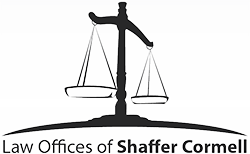Driving is a privilege, not a right. If someone commits certain acts, ranging from vehicular manslaughter to consistently ignoring traffic laws or driving while under the influence, then a license suspension is likely going to be that person’s punishment. Just because someone has had his or her license suspended that doesn’t mean it isn’t possible to get that license reinstated. It simply means that the individual in question has to follow all of the directions provided by the court in order to have driving privileges again.
What Are The Reasons for License Suspension?
The reasons for license suspension vary by state and jurisdiction. However, there are some general categories that are universal. If someone is convicted of an automotive crime, such as driving while under the influence of alcohol or drugs, then a license suspension is one of the most obvious penalties that comes with that conviction. Driving without insurance is also a cause for suspending someone’s license, since insurance is required to be a driver all over the United States. If a driver disregards orders from the court, such as a requirement to complete a certain remedial driving course in order to keep his or her license, then that can also be grounds for a suspension. Lastly, if someone has a medical condition that would make driving dangerous, such as progressive blindness or acute Alzheimer’s disease, then that person’s license might be suspended as well.
The Steps to Getting a License Reinstated
There are a lot of different approaches one can take to get a suspended license reinstated. The most straightforward approach is to follow the routine proscribed by the court at the time of the sentencing. That could mean attending therapy, remedial driving school, or simply waiting a certain amount of time before someone is eligible to apply for a new driver’s license.
The other option one has is to argue with the court over the conditions of a reinstatement. This typically requires a legal representative, and there’s no guarantee of success. However, if there is a way to overturn a ruling or to make a deal with the court system, a lawyer can do that on one’s behalf. For instance, a lawyer could arrange it so that someone pleads to a lesser offense and has to take a remedial driving course, rather than face a five year suspension. Or, alternatively, a lawyer could appeal a decision, and if the appeal trial shows that the defendant was not guilty then the suspension, along with the rest of the penalties that came with the conviction, would be overturned and erased from the individual’s record.
There is no guarantee that fighting the situation will get someone his or her license back more quickly. In fact, if the evidence in the case is cut and dry then there may be nothing for an individual to bargain with. In these cases the only option someone has is to do what the court says in order to get his or her driving privileges reinstated. As with any kind of punitive measure, the quicker someone fulfills the requirements set out by the court, the more quickly he or she can get back to a regular life.
